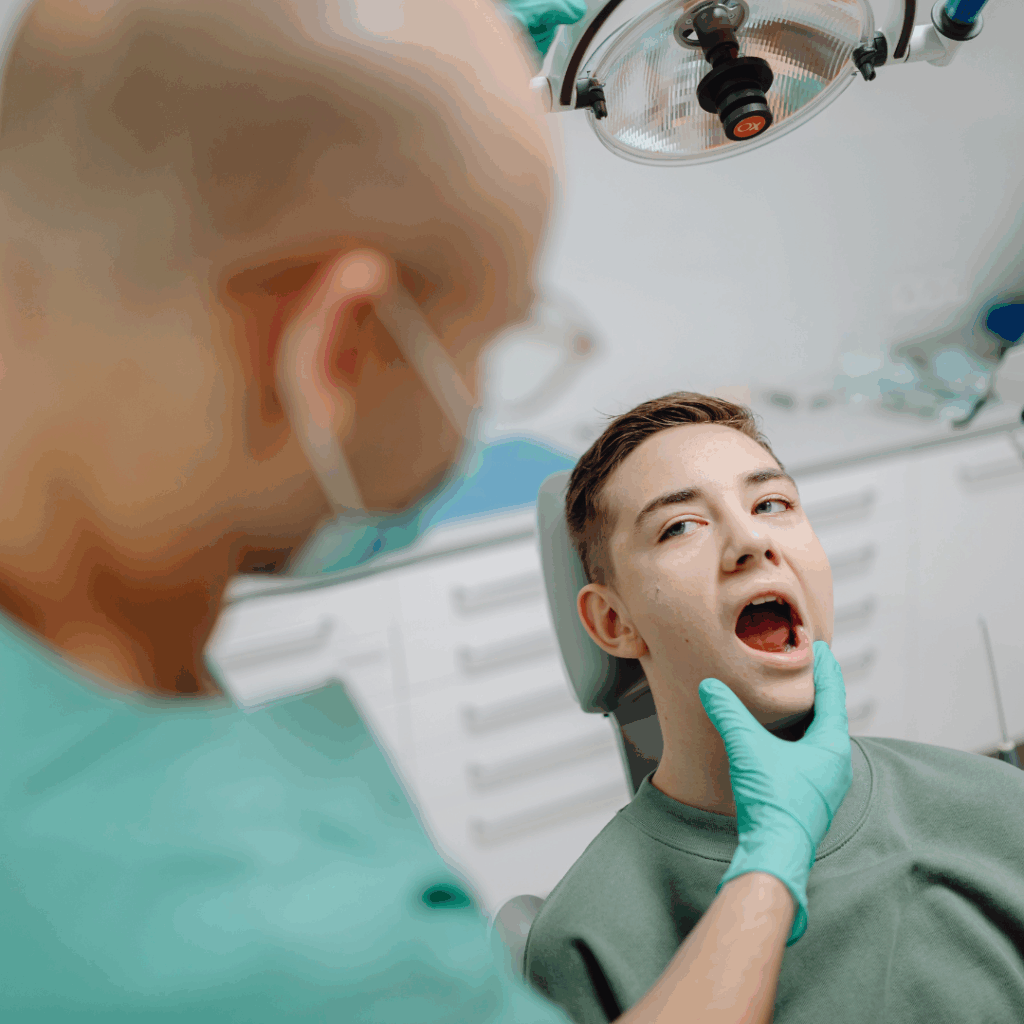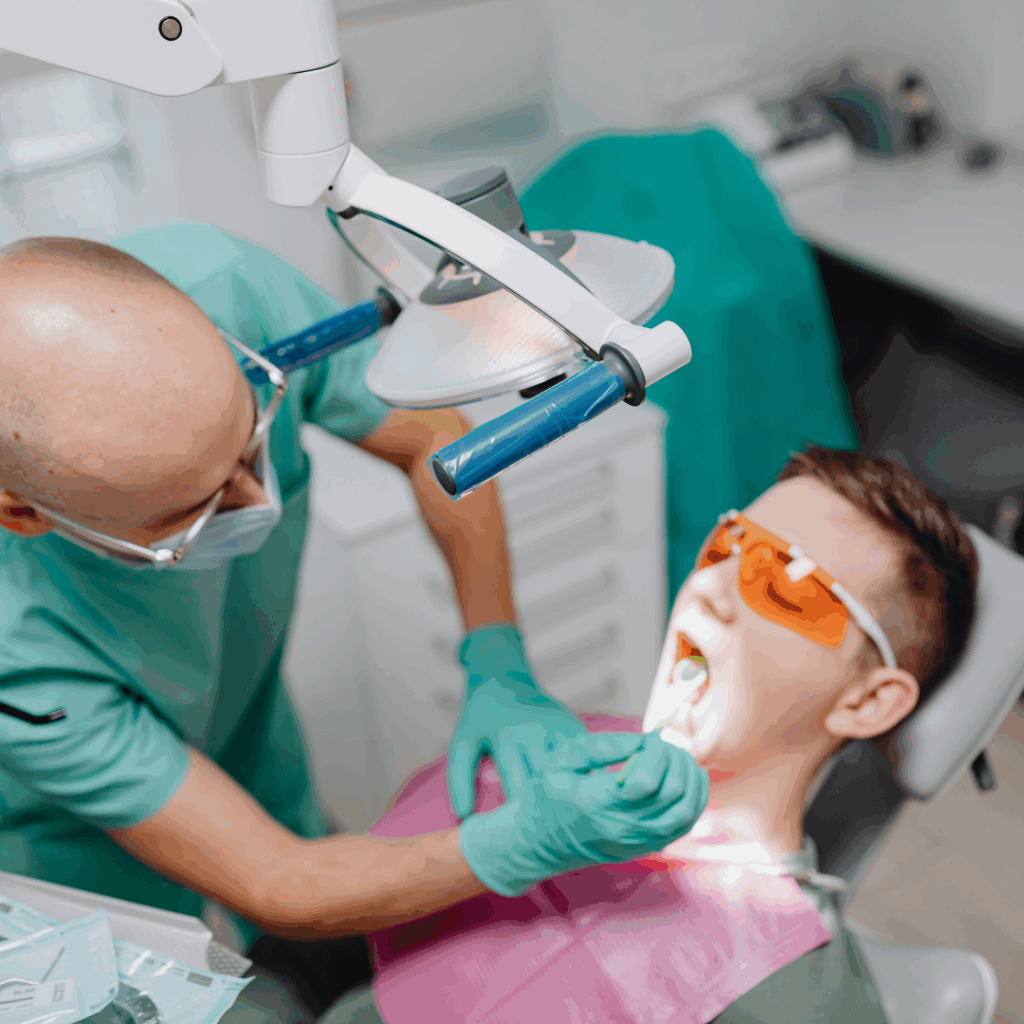
Tooth extractions aren’t what they used to be. Over the past decade, technology and training have changed how we approach every single step, from diagnosis to healing. At Westfield Oral Surgery, we’ve seen firsthand how modern tools and techniques make the experience smoother, quicker, and less stressful for our patients.
If you’re searching for a wisdom teeth removal dentist in New Jersey that residents trust, it’s worth knowing how far the field has come. Today’s extractions are more precise, less invasive, and designed with your comfort in mind.
The New Era of Tooth Extractions
We understand; no one likes to lose a tooth. But sometimes it’s the best for your smile and your comfort. If it’s a cracked molar or an impacted wisdom tooth, the mission is always the same: to save your smile and comfort.
Thanks to improved surgical planning and new technology, extractions are no longer accompanied by long recovery periods or pain. Now, surgeons plan using imaging tools, minimally invasive equipment, and evidence-based postoperative care procedures.
Why Tooth Extraction Methods Have Evolved?
The greatest change in oral surgery is accuracy. All our equipment and procedures today are built to:
- Minimize trauma to the adjacent gum and bone
- Decrease recovery time
- Decrease infection risk
- Decrease swelling and pain
- Make the entire process less daunting
Which means patients are in the chair for less time and recover more quickly than ever.
Key Improvements in Contemporary Extraction Procedures
Let’s dissect some of the methods we use at Westfield Oral Surgery that really make an impact for our patients.
1. 3D Imaging for Surgical Planning
3D cone-beam imaging provides us with a complete picture of your tooth roots, nerves, and jawbone, even before we start. This way, we get to plan every aspect, anticipate complications, and make the extraction complications smoother.
2. Sectional or “Split-Tooth” Extraction
Rather than pulling an entire tooth at one time, we can section it. It’s easier on the bone and tissue around it, puts less pressure, and heals more quickly. Patients usually comment that they’re surprised at how comfortable the process is compared to what they anticipated.
3. Laser-Assisted Surgery
Lasers sterilize the surgical site, make clean incisions, and reduce bleeding. This technique also reduces infection risk and accelerates tissue healing. The outcome? You can resume your daily activities quickly with less pain.
4. Socket Preservation
Once extracted, it is imperative to leave the bone socket intact if you intend to have the tooth replaced later with an implant. We employ grafting materials that uphold bone density so that there remains a solid base for eventual restoration.
5. Platelet-Rich Fibrin (PRF) for Healing
This is perhaps the most thrilling breakthrough. By taking a small sample of your blood, we produce a healing concentrate full of growth factors. PRF speeds up the healing process and significantly eliminates swelling and pain after surgery.
The Role of Sedation in Comfortable Extractions
We know anxiety exists. That’s why sedation is included in nearly every plan we create. From local anesthesia to IV sedation, we want to match the amount of relaxation you require.
When you see a wisdom teeth removal dentist in New Jersey that patients trust for comfort, you should expect something more than a clinical procedure; you should also expect care that quiets your mind.

Our Process: Step by Step
This is what a contemporary extraction visit is like at Westfield Oral Surgery:
- Consultation and Imaging: We assess your oral health and take 3D scans for thorough planning.
- Customized Treatment Plan: We determine the optimal extraction method and sedation for you.
- Minimally Invasive Procedure: With microsurgical tools, we extract the tooth with minimal trauma.
- Immediate Healing Support: PRF or socket preservation measures are applied if necessary.
- Aftercare Instructions: We take you step-by-step through how to keep the area clean and facilitate healing.
This synergy of science and patient care makes a big difference.
What Distinguishes Westfield Oral Surgery?
When individuals come to us, they usually anticipate a challenging experience. But what they discover is compassion, clarity, and care that’s modern to its very foundation. Our priority isn’t simply about getting the job done; it’s about helping you heal well and remain certain of your smile.
What we believe in:
- Precision and comfort are inseparable.
- Communication is included in every treatment.
- Technology needs to make your experience simpler, not more complex.
- Healing begins the moment you step into our office.
We’ve taken years to perfect not only how we remove teeth, but how we treat the individuals who have them.
Typical Situations for Tooth Removal
Tooth removal isn’t always wisdom teeth. Some typical reasons are:
- Extensive tooth decay that can’t be repaired
- Gum disease that is advanced
- Cracked or broken teeth
- Orthodontic purposes (to create room for alignment)
- Preparation for implants
In both cases, our team tackles the procedure with care and safety.
Healing Quicker After Extraction
Post-extraction recovery has also come a long way. We offer clear after-extraction instructions and utilize state-of-the-art materials that promote rapid, natural healing.
These are just a few of the things we always instruct patients to do:
- Gently apply pressure with gauze for one hour.
- Use ice packs to manage swelling in brief periods.
- Don’t use straws and smoke for a minimum of 48 hours.
- Stick to soft foods and drink plenty of fluids.
- Follow up with us if something doesn’t feel right; don’t wait it out.
We’ve had patients heal incredibly well with these uncomplicated, routine steps.
Integrating Technology with Compassion
At Westfield Oral Surgery, it’s not simply about machinery and equipment; it’s about people. Every scan, laser, or sedation technique we employ has one purpose: to ensure you’re comfortable and confident from beginning to end.
When we tell you we provide Westfield Dental Care, that’s exactly what we do; individualized care supported by actual experience and actual concern.
The Future of Tooth Extraction in New Jersey
In the future, we’re witnessing even greater developments: computer-assisted extractions, regenerative tissue science, and pain relief solutions that are more natural and more effective.
Our goal is to remain at the forefront of those changes so our patients always have access to the safest, most efficient care available. When our team is here to help, extraction doesn’t have to be a nightmare. With the correct approach and technology, it can be a surprisingly straightforward process.
Ready for a Better Dental Experience?
When you’re ready to take care of your oral health, we’re here to make that next step easier. At Westfield Oral Surgery, our commitment to advanced methods, compassionate care, and continuous improvement sets us apart.
If you’re looking for Westfield Dental Care that prioritizes your comfort, book your appointment today. We’ll guide you through every step, respond to every question, and see that you leave with faith in your care and a smile.
Frequently Asked Questions
What is the contemporary technique of extraction?
Contemporary techniques of extraction utilize 3D imaging, microsurgical instruments, and soft techniques to extract teeth with little pain and quicker recovery.
What are the three extraction methods?
The three primary methods are simple extraction, surgical extraction, and sectioned extraction; each is determined by the tooth’s position and health.
What is the 3-3-3 rule for a toothache?
It means if a toothache persists for longer than three days, is treated with more than three doses of pain relief medication per day, or affects sleep for three nights, you need to see your dentist.
How to ease wisdom tooth pain?
Cold packs, saltwater rinses, and over-the-counter medications may temporarily relieve pain, but a professional assessment guarantees long-term relief.
When to be concerned about wisdom tooth pain?
If you have swelling, fever, or stiffness in the jaw, it’s time to come to Westfield Oral Surgery for an assessment.
